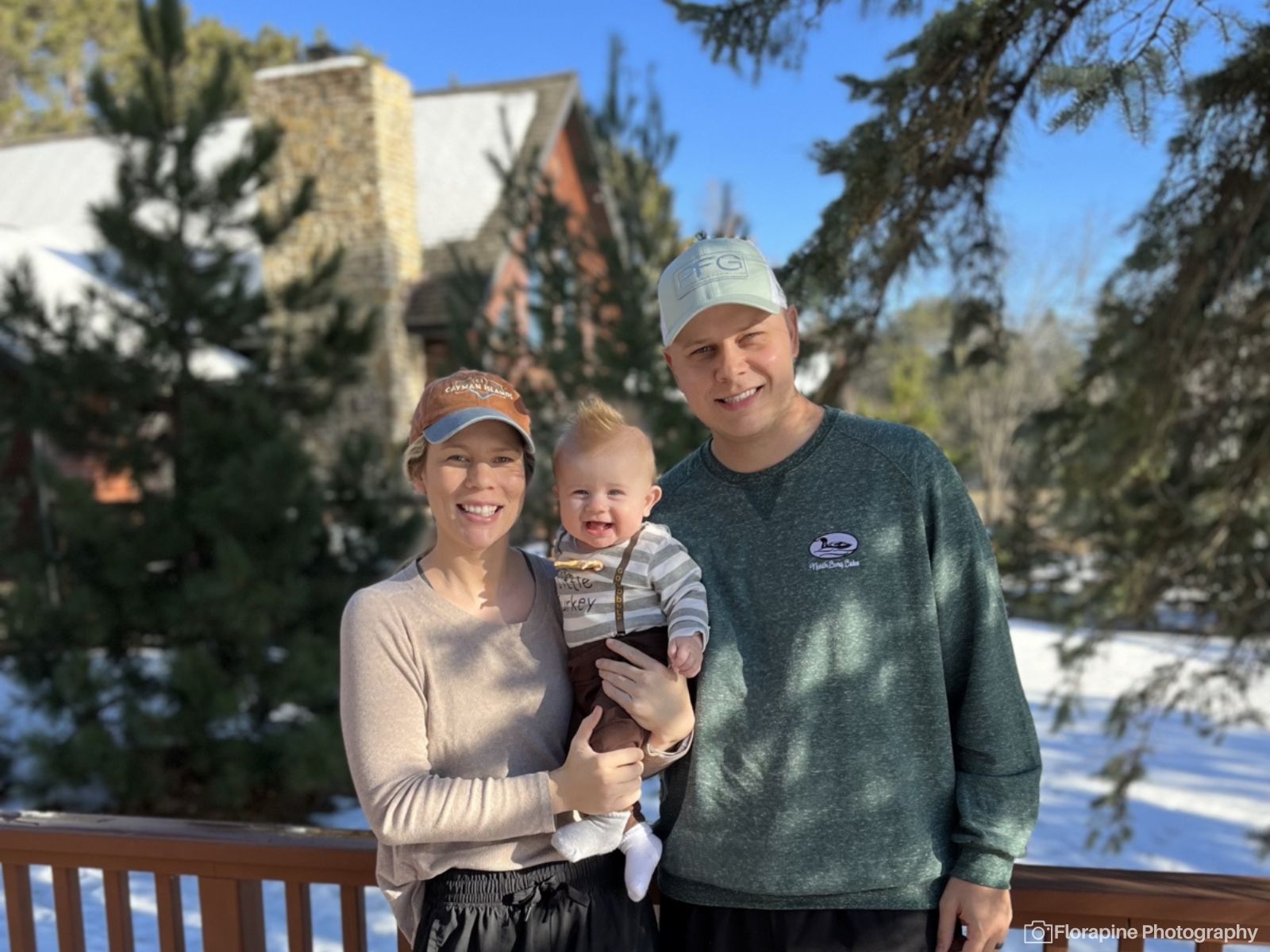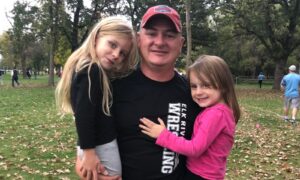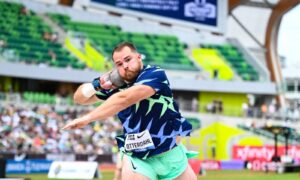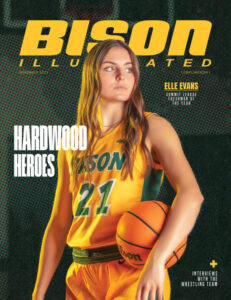Brock Jensen is an NDSU LEGEND. #16 still, after three NFL quarterbacks followed him, is first in program history in pass attempts and pass completions and is second in program history in passing yards, passing touchdowns, total offense, total touchdowns, and total offense per game. And most importantly, he led the Bison to the school’s first three FCS National Championships, going back-to-back-to-back to kickoff football’s greatest collegiate dynasty in history.
After graduating, Jensen signed with the Miami Dolphins as an undrafted free agent, but was cut during the offseason program. The following year, Jensen signed with the Ottawa Redblacks in the Canadian Football League. Jensen ended up playing two seasons with the Redblacks before retiring and becoming a financial advisor at Edward Jones.
We caught up with Jensen who is loving life with his wife Kahla and son Jace.
I know we did a “Where are they now” story with you a couple of years back, but there are a few things I’m hoping to learn a little bit more about. The first is your decision to retire. I know you had a shoulder injury. Were you just not able to physically do it anymore or were you wavering back and forth on the decision?
I would say I kind of hit a crossroads. I could have rehabbed it and could have had it not necessarily sideline me for my whole career. But I had to make a decision whether or not I wanted to do the rehab to play. At that point in time, I had started a few games for the Ottawa Redblacks and had kind of shown that I could play in that league at a high level.
Before I decided to hang it up, the team tried to trade me to Toronto, and I just kind of politely declined and said I was going to be done. I almost didn’t want to go through the process of trying to rehab, trying to get acclimated to a new city and I was newly married at the time. So, between all those factors, I just decided it was probably time. Football had been pretty good to me. We had just actually won the Grey Cup the previous year. So, to be able to kind of go out on top and go out on my own terms, and all those kinds of factors kind of played into my decision.
This iconic NDSU photo is from Jensen’s big touchdown run in the national championship game against Sam Houston State
Would the injury have required surgery?
I think to be really effective, yes. It was one of those where I could have strengthened the muscles around the area that was injured, which was actually multiple areas where I had frayed tears in my rotator cuff. I had slightly broken my collarbone in college which completely healed. The other injury was to my AC joint which never completely healed. The other one was my labrum, another key component in your shoulder, which probably was affected a little bit by all the hits and stuff over time and all the throws and whatnot. But between all those, I kind of had the trifecta and just thought, ‘I could keep rehabbing it and keep prolonging surgery.’ But at what point do I see this road ending and when can I just be happy to move on to the next chapter?
Were you kind of tired of just hurting all the time as well?
Yeah, a little bit, moreso I was maybe a little tired and frustrated. Frustrated that my shoulder was kind of starting to wear down and wear out on me a little bit. I was a dual-threat quarterback my whole life. I could certainly still use my legs and whatnot. But in the professional leagues, CFL or NFL, you have to be able to sit back there and sling the rock. That’s how you’re going to make your money. And I just felt like in order to do that, I would need my shoulder to cooperate better than what it was doing for me. It just wasn’t happening.
Do you think you would have played the next season if you wouldn’t have been traded?
Yeah, I think I would have. I would have had a good shot at starting over in Toronto. I had been to Toronto several times, obviously, they were in our conference. That’s where we won the Grey Cup in 2016. I just didn’t really see myself being in a big city like Toronto.
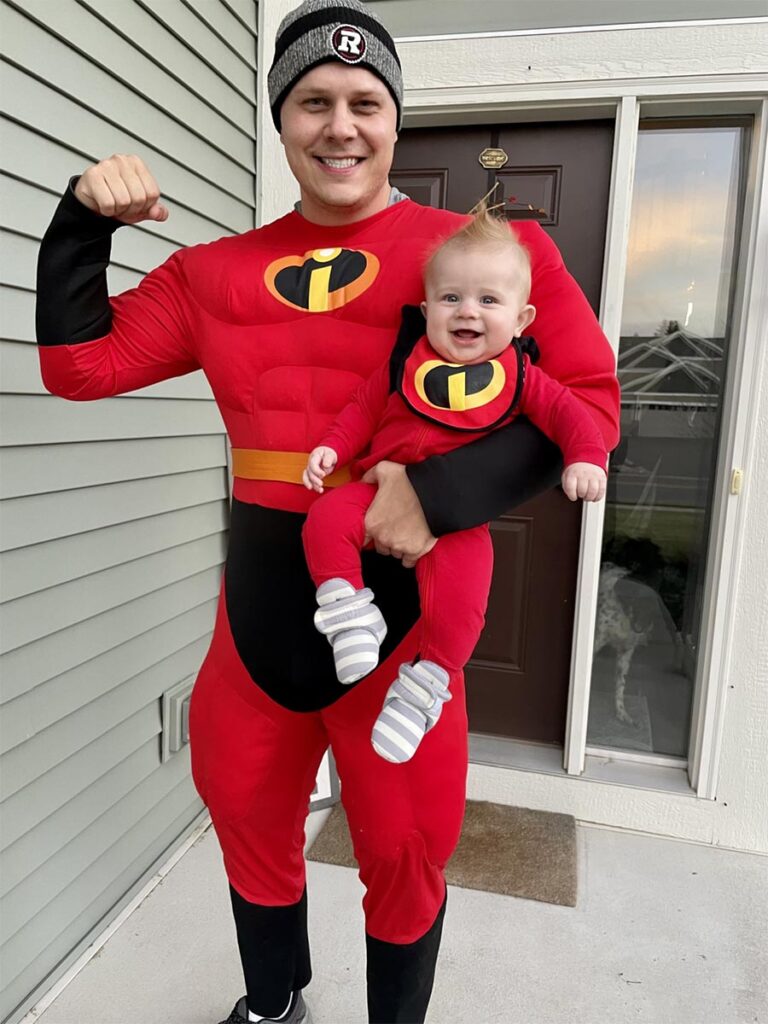
The other interesting part of the article was when you talked about how Ryan Smith’s father started recruiting you in college to work for Edward Jones at some point. Did you really ever even think of a career outside of football much when you were in school?
I think you have to, as a very competitive athlete, kind of wire your mind to not have a plan B. You need to prepare yourself to make a plan B available, but you need to commit as if there is no alternative. I think that propels your work ethic and commitment to the sport—to master your craft. That’s kind of how I trained and kind of how I went about it. I still joke with Randy, Ryan’s dad, to this day because as he was kind of explaining to me the opportunity with Edward Jones and that he thought I might be a good fit as a financial advisor someday, I would say, ‘Randy I’m going to be playing football for a while, I’m not worried about that.’ So I really had the mindset that that was what I was going to do and I’d figure it out once it was all over. Any high-level athlete and person kind of goes about their job that way—there’s no plan B, you’re just going to make it work.
So you were building skills and obtaining knowledge so that you would have the opportunity to pivot, but essentially not creating an avenue for doubt in your mind by creating plans for another route.
Exactly. You have to be relentless. The separator at those high levels is those athletes who can mentally endure hardship—which is part of the journey that comes along with being a pro athlete. That profession comes with aches and pains in the body, lots of training and then going through a whole season and then the offseason and continually doing that every year. Then, you also have to capitalize on opportunities when you do get into a game, which may translate to a starting position, which may translate to being a franchise guy, and so on and so forth. There are a lot of chips that need to fall into place. And you need to give yourself the best opportunity and chance to capitalize on that opportunity when it does come and there’s a lot that goes into that that people don’t really understand.
What’s that stress like as a player? Anybody who follows the professional game knows about the emergency list and in-season additions. There are constantly people trying to come take your job.
Yeah, it’s high-level stress that never goes away. When you’re playing, it’s something that you get used to. I got used to it because it was even happening in college for me—for instance, I had a pretty good backup in college, [Carson Wentz]. He was always trying to find a way on the field—that’s what competitors do. You have to show up every day. There’s a lot that goes into that, through your performance, preparing to perform well, staying healthy, and just staying mentally in it too, especially at quarterback.
Do you still watch much football?
Yeah, I do. I probably don’t follow as much as some people might think. I totally follow the Bison still. And, of course, will always follow the Bison. I count my blessings, because I was a guy that was pretty under-recruited in high school and was just looking for that one opportunity. I didn’t get a scholarship offer anywhere else besides NDSU. I’m very grateful that I got a chance to wear the green and gold. I’m forever thankful for that and forever a huge fan of the Bison. NDSU is where I met my wife. There are so many good memories there.
I have a lot of other interests and things going on these days other than just football. But it’s fun, obviously, when the fall comes around, it’s hard not to watch on Saturday and Sunday. But my life certainly does not revolve around football anymore.
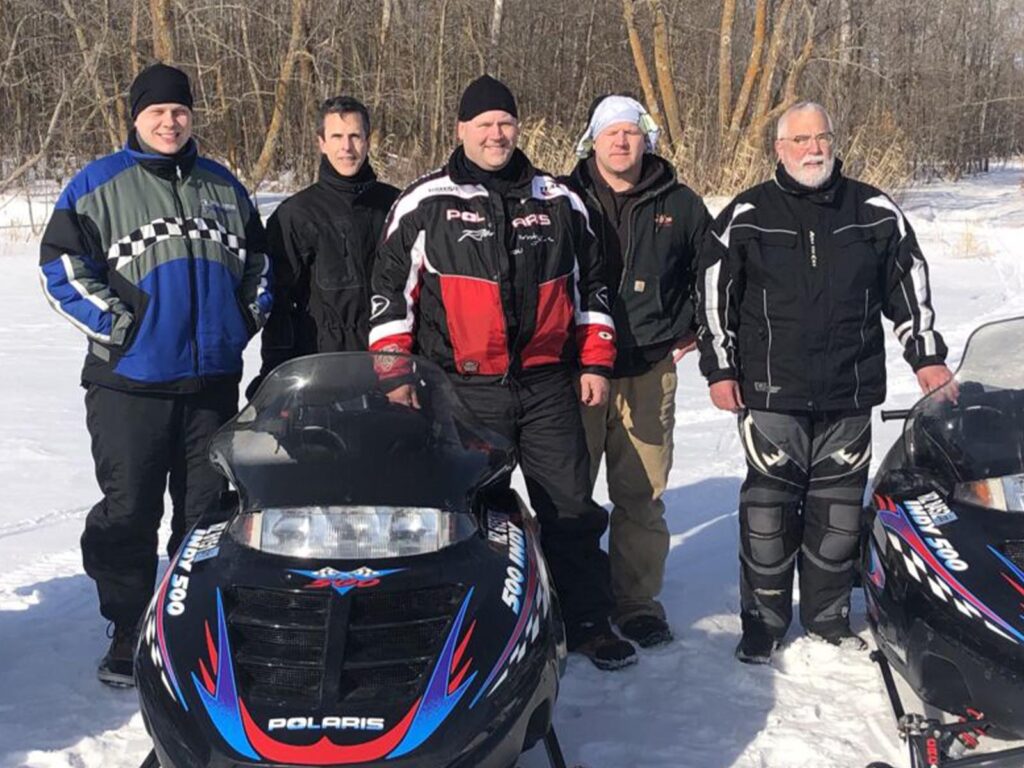
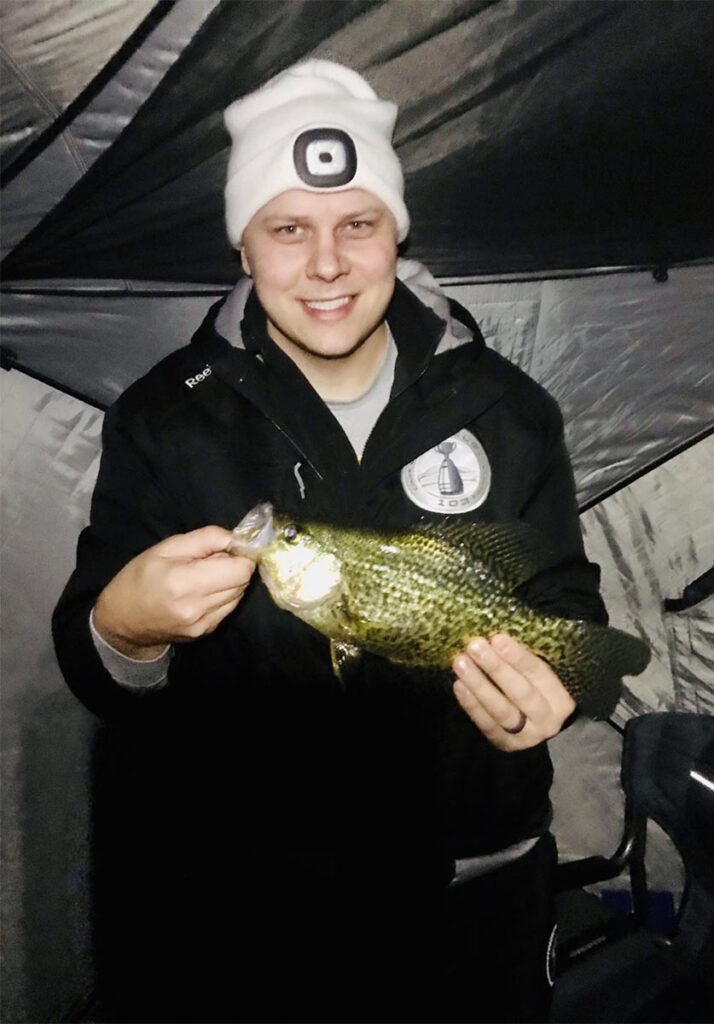
Can you tell us more about those other interests you have?
Because I was dedicated to football through high school and college, I almost didn’t have any time to kind of figure out what I liked to do. I didn’t have time to really explore hobbies and stuff. And maybe I should have done a little bit better job doing that throughout my years in high school and college and even into the pros. I found out I really like hunting. I really like fishing. I really like outdoor activities. My wife and I like hiking, snowmobiling, and four-wheeling. I like being on the lake, boating, and just spending time with friends and having good conversations. I like all the outdoor activities like downhill skiing, all that kind of stuff. It’s been fun to get a chance to do some of these other things that I maybe missed out on from age 18 to 26.
How many other options did you explore after retiring besides Edward Jones? I’m sure you took some time to kind of decompress and think about your next move.
Basically, I had June, July, and August to kind of regroup a little bit, and just kind of take some time to figure out what that next step is. Those few months in the summer allowed me to kind of get back to what it was that interested me and how I wanted to make my next career move. I came to the conclusion that I wanted to settle into something where I could be rooted in a community that’s somewhere that I enjoyed being, and where I can have some more stability because I never had that. I was living out of a suitcase. I longed to just to be settled down. To be parked somewhere and start a family and to kind of have, maybe, for lack of a better word, some normalcy. Some normalcy that most people get after college.
Ryan’s parents, Randy and Trudi, kind of became my parents away from home a little bit because they were in Wahpeton and it was too far of a drive to go to central Wisconsin when we had breaks in college. I had a lot of good conversations with Randy about what the job as a financial advisor entails and it really aligned with the things I wanted to be able to do. I’ve always been somebody who has been goal-oriented and I like helping people. It was a pretty easy transition and I love helping people make smart financial decisions for their life and help them with their goals and I thought that transition would suit me well for the rest of my life. And it was a great decision. It really was. This is exactly what I should be doing. And I enjoy my job.
What was your financial literacy like prior to taking the job?
I was always interested in the stock market in high school and throughout college. I just liked learning about it. I liked learning what stocks, mutual funds, and investments were— those things were always interesting to me and I liked it. Those interests grew throughout college, even though I was actually an education major. I’ve always been a good saver too.
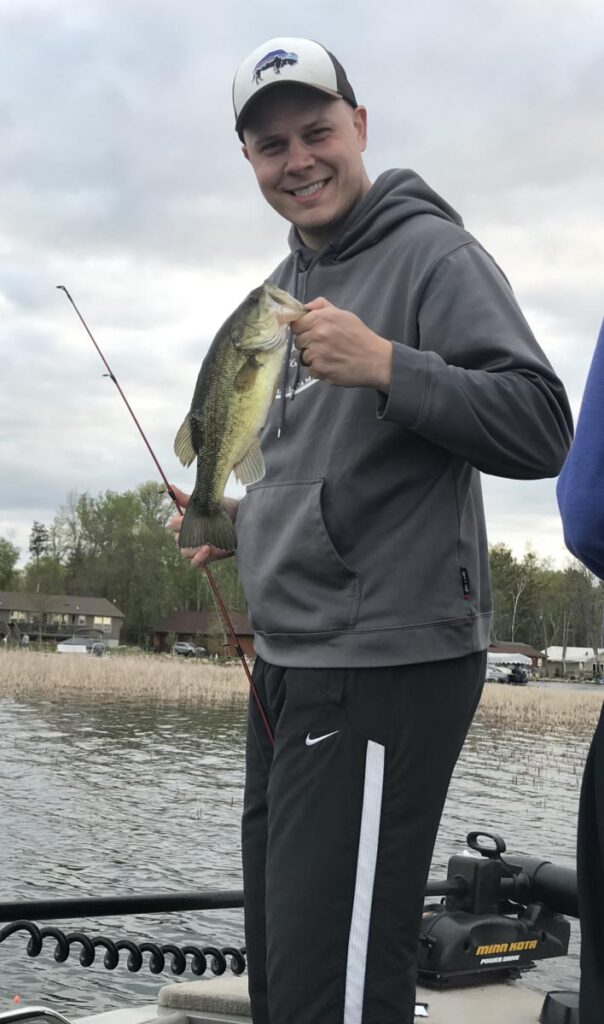
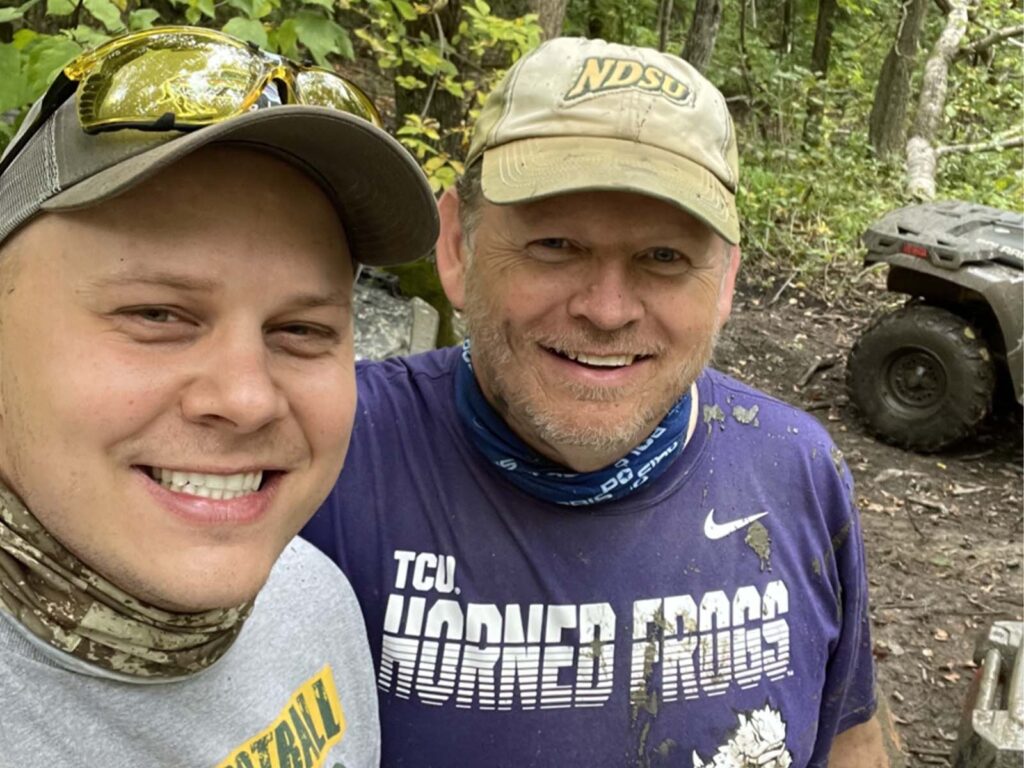
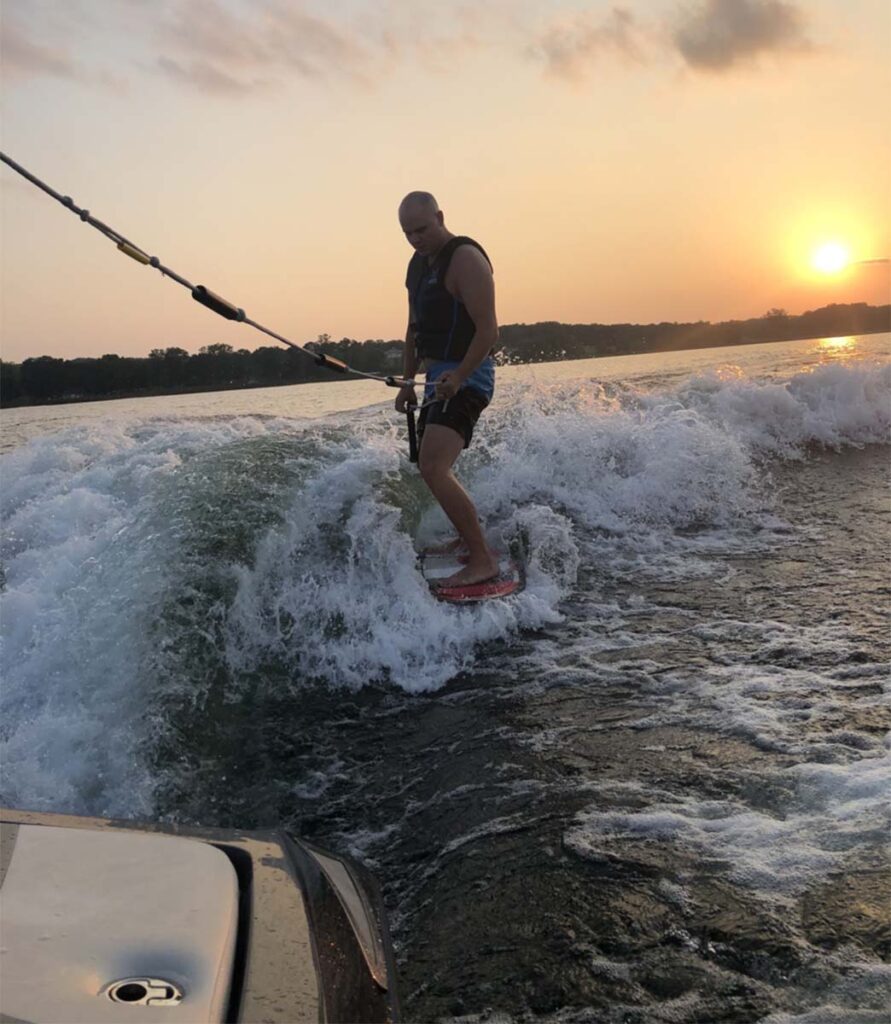
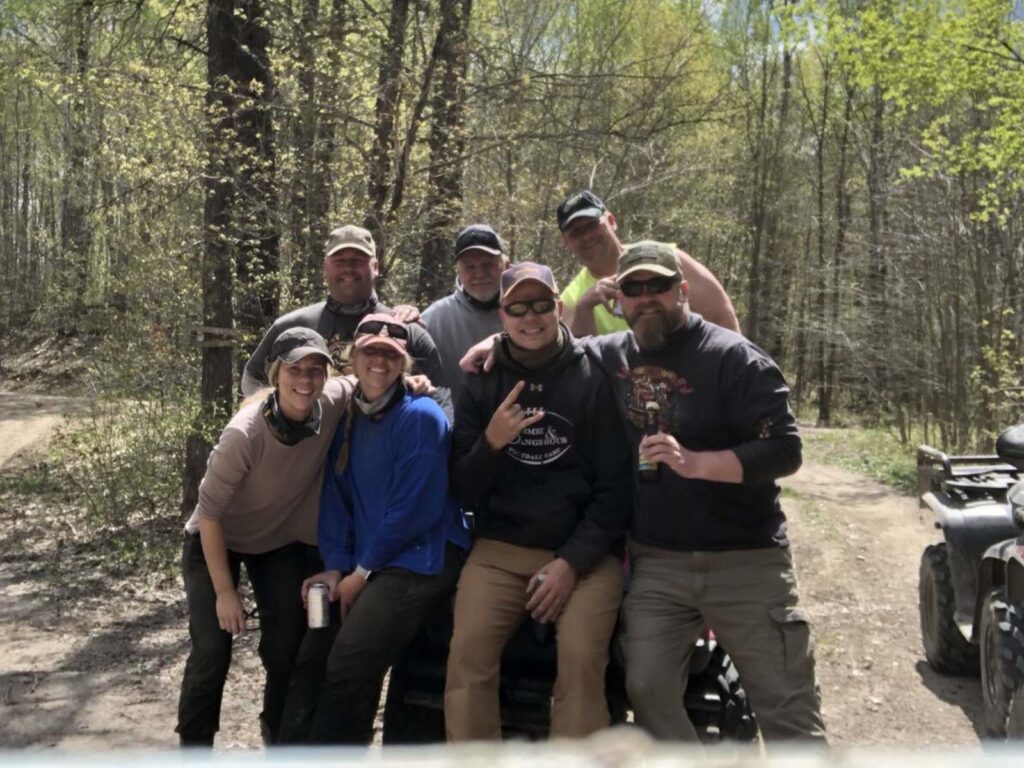
What was the learning curve like in transitioning to that profession?
Yeah, it’s like anything else. At first, it’s just following the recipe. I think Edward Jones, especially, does a great job of laying out the format for how all this works and how it comes together. My role is to just kind of take what they give me and implement that into helping people. I think the learning curve was just a matter of being coachable, which is something that I always have tried to be. At first it’s kind of getting the whole hang of the schedule, what your job is, and how to do it effectively and well.
How old is your son now?
Jace is almost coming up on a year now. He will be 1 on April 25.
What has that experience been like being a father?
It has been awesome. It has been one of the biggest changes I’ve ever had to deal with in life, but it’s been the best change ever. I’d be lying if I said that it wasn’t hard. It’s definitely hard, obviously, especially at first during the newborn stage. You’re not getting much sleep. So, it’s kind of a little bit challenging, but it’s the most gratifying thing ever just seeing them grow and helping them and just coming home from work and being able to just play with him. And just horsing around with him. He likes messing around. He’s kind of a rough houser already and he can’t even crawl or walk. It’s been amazing, and just kind of fun to see.
What else do we need to know about your post-NDSU life?
We have another baby on the way. That’s some big news in my world.
Website: edwardjones.com/us-en/financial-advisor/brock-jensen
Facebook: /ejadvisorbrockjensen

